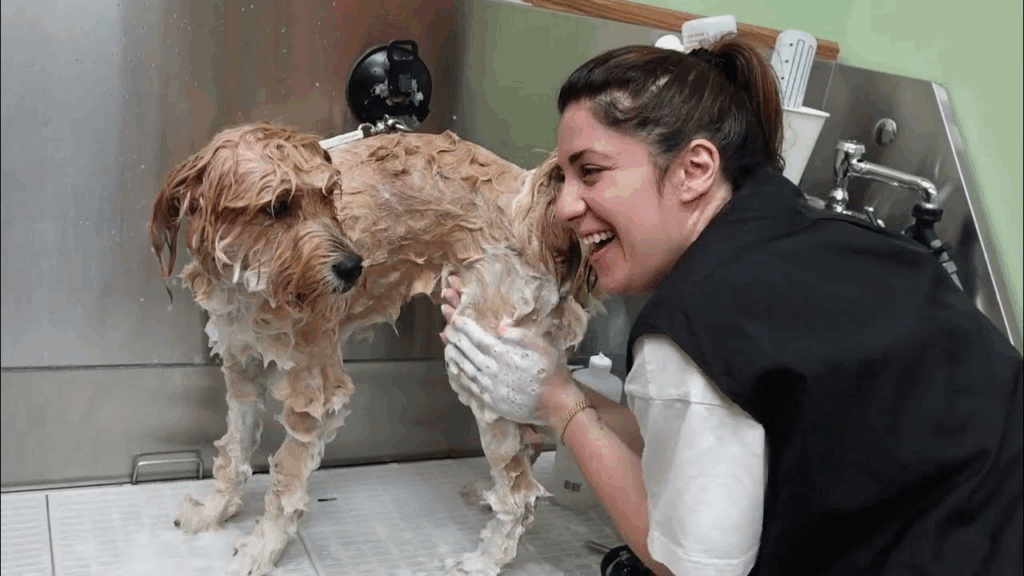Discover the power of grooming! Unbeknownst to many, there’s a fascinating link between your personal grooming habits and your overall health. This connection, often overlooked, is both surprising and enlightening. This post will unravel this hidden relationship and shed light on the profound influence of good grooming on physical and mental well-being.

How often have we heard that first impressions matter? Personal grooming plays an integral role in shaping those impressions. But what if it goes beyond just appearances? What if grooming has an impact on your health as well? This post will delve deep into this subject, bringing to the surface the science-backed facts and intriguing studies that illuminate the health benefits of grooming.
Exploring topics from skincare, haircare to mental health, this post promises to offer a comprehensive guide on the health implications of grooming. With insights from health and beauty experts, it seeks to educate about the surprising ways grooming can enhance physical health and mental well-being.
There’s a world of difference between knowing that grooming is essential and understanding why. By the end of this post, you will not only have deepened your knowledge about the health benefits of grooming but also have gleaned practical tips to enhance your grooming routine. It’s time to unlock the true power of grooming!
Get ready to embark on this enlightening journey of self-care and health. If you’ve ever dismissed grooming as mere vanity, prepare to have your perspectives reshaped. The connection between grooming and health is waiting to be discovered, and it promises to be a fascinating and insightful exploration.
Grooming: More Than Just Looks
From a technical perspective, grooming is more than just a matter of aesthetics. While the immediate visual benefits are apparent, the impacts of grooming reach far beyond the surface level. Good grooming habits contribute significantly to physical health, mental wellbeing, and overall quality of life.
The Science Behind Grooming and Physical Health
There is a surprising connection between grooming and physical health. The skin, our body’s largest organ, plays a pivotal role in this relationship. Regular washing and exfoliating contribute to the removal of dead skin cells, sebum, and bacteria. This action promotes a healthy complexion and, more importantly, helps reduce the risk of skin infections. Good hygiene practices also aid in preventing the spread of diseases.
Dental hygiene, a critical part of grooming, holds similar importance. Regular brushing and flossing can significantly reduce the risk of oral health issues such as gum disease and tooth decay. Further, there is a growing body of evidence suggesting a link between oral health and cardiovascular health, underscoring the role of dental hygiene in overall wellbeing.
Emotional and Mental Impact of Grooming
Beyond the physical, grooming habits have a profound impact on mental and emotional health. The act of grooming can often serve as a form of self-care, providing a routine and a sense of control. This aspect is crucial, as a regular routine can help establish stability, particularly in times of stress or uncertainty.
Research has also shown that personal grooming can boost self-esteem and confidence. Feeling good about one’s physical appearance can have a positive effect on mood and self-perception. Regular grooming routines can also help reduce anxiety and improve overall mental wellbeing.
Unlocking the Power of Grooming: Key Practices
To harness the health benefits of grooming, it is essential to understand the key practices involved.

Skincare Regimen
A skincare routine should involve cleansing, exfoliating, moisturizing, and protecting the skin. Here are some key steps:
- Cleansing: Regular and thorough cleaning is crucial to remove dirt and bacteria.
- Exfoliating: This helps remove dead skin cells and can aid in skin rejuvenation.
- Moisturizing: Keeping the skin hydrated prevents dryness and helps maintain skin health.
- Sun Protection: Regular use of sunscreen can protect the skin from harmful UV rays and reduce the risk of skin cancer.
Dental Hygiene Practices
Dental hygiene should be a non-negotiable part of your grooming routine. This should include:
- Brushing: At least twice a day to remove plaque and prevent tooth decay.
- Flossing: To remove food particles and plaque from between the teeth and gums.
- Regular Dental Check-ups: For professional cleaning and early detection of any oral health issues.
The Bigger Picture: Grooming and Personal Branding
Grooming is an essential aspect of personal branding. It sends a message about who you are and how you value yourself and others. In professional settings, good grooming can communicate competence, professionalism, and attention to detail.
When you meet someone for the first time, visual cues play a critical role in forming initial impressions. People subconsciously assess your cleanliness, posture, and attire to form opinions about your reliability, credibility, and even your work ethic. In this way, grooming becomes a silent but powerful form of non-verbal communication.
For example, well-trimmed hair, clean nails, and pressed clothing convey diligence and self-awareness. These subtle signals often contribute to how others perceive your capability, especially in competitive environments such as job interviews, business meetings, or public speaking events.
Furthermore, grooming can affect your digital presence. In an era where virtual communication is commonplace, appearing neat and put-together during video calls shows that you respect both yourself and the time of others. Whether in person or online, personal grooming is a visual extension of your character and professionalism.
The Psychological Reinforcement of Self-Care
Beyond outward perception, grooming habits reinforce an internal narrative. Regular grooming tells your subconscious that you are worthy of care, attention, and time. This can significantly influence self-confidence, motivation, and mental clarity.
There is a psychological principle known as “enclothed cognition,” which suggests that the clothes and grooming practices we adopt influence our behavior and performance. When you take time to look good, you often feel more competent, and this, in turn, enhances your overall performance.
Establishing grooming rituals also introduces structure into your daily life. Morning routines, such as brushing your hair, applying skincare products, or styling your clothes, serve as anchoring activities that offer predictability and comfort. These rituals provide a mental boost that can make you more resilient to daily stressors.
Cultural and Social Influences on Grooming Standards
Personal grooming habits are often influenced by cultural norms and societal expectations. Different cultures place varying emphasis on grooming rituals, cleanliness, and presentation. In some societies, strong grooming habits are associated with social status, while in others, they are linked more closely with discipline or spiritual cleanliness.
For example, in some Eastern traditions, grooming is intertwined with spiritual practices. Ritual baths, oiling the hair, and maintaining a clean appearance are not just about aesthetics, but also about inner harmony and discipline. In Western cultures, grooming often aligns with social norms that reflect upward mobility and self-control.
Understanding these cultural nuances can help individuals navigate social interactions more effectively, particularly in multicultural environments. Adapting grooming practices in a way that respects both personal values and cultural expectations can foster inclusion, understanding, and mutual respect.
Grooming in Relationships and Social Dynamics
The way individuals groom themselves also plays a role in their interpersonal relationships. In romantic and social contexts, grooming is often associated with care and interest in others. When someone takes the time to present themselves well, it can signal that they value the connection enough to put in the effort.
In long-term relationships, maintaining grooming habits can contribute to sustained attraction and mutual respect. Though comfort is key in close relationships, continued attention to grooming can prevent complacency and reflect ongoing care for oneself and the other person.
Additionally, grooming influences group dynamics. In workplaces, schools, or social clubs, consistent grooming can set the tone for behavior and expectations. Teams often function better when all members project a sense of pride and responsibility in their appearance and behavior.
Grooming as a Form of Mindful Practice
Grooming is not only about external appearance or societal expectations. It can also serve as a form of mindfulness. When approached with intention, everyday grooming activities can become meditative rituals.
For example, taking a few minutes each morning to moisturize your skin or brush your hair can become a moment of self-connection. This is especially true when done slowly, without distraction, focusing on the sensations and the act itself. These mindful moments can help reduce anxiety and ground you in the present.
This concept ties into the larger framework of self-care. When grooming is approached as a nurturing act rather than a chore, it becomes a method for preserving mental wellness. It reminds you that your body deserves care and respect, which can uplift your mood and foster self-compassion.
Grooming Across the Lifespan
Grooming habits and their importance evolve throughout different stages of life. For children, grooming is about learning responsibility and hygiene. Teaching kids to wash their hands, brush their teeth, and care for their clothes sets the foundation for lifelong habits.
In adolescence, grooming often becomes more appearance-focused as teens explore identity and self-image. This is a critical time for establishing healthy grooming habits and understanding the link between self-care and self-esteem.
Adults use grooming as both a practical and expressive tool. It becomes a part of professional routines, social signaling, and personal expression. In later years, grooming takes on a different form—focusing on comfort, dignity, and maintaining independence.
For elderly individuals, grooming is closely tied to mental health. Maintaining grooming routines can combat depression and help older adults feel in control. Assistance with grooming may be required in cases of disability or illness, but the act of grooming remains a fundamental human need throughout life.
Practical Strategies for Enhancing Your Grooming Routine
To maximize the benefits of grooming, consider implementing a few simple yet effective strategies:
- Create a consistent schedule: Decide on morning and evening routines that fit into your lifestyle.
- Invest in quality products: Choose items that suit your skin type, hair type, and personal needs.
- Stay organized: Keep your grooming tools clean and your products within easy reach.
- Combine grooming with wellness: Play calming music, use aromatherapy, or pair your grooming routine with affirmations.
- Track your progress: If you’re working toward clearer skin, healthier hair, or improved oral health, take notes or pictures to stay motivated.
Embracing Grooming as a Form of Self-Respect
At its core, grooming is an act of self-respect. It’s about treating your body with the care and attention it deserves. This self-respect often translates into improved boundaries, better decisions, and a greater sense of self-worth.
People who prioritize grooming are more likely to prioritize other areas of wellness, such as nutrition, sleep, and fitness. The discipline and attention that go into grooming often spill over into other healthy habits, creating a holistic lifestyle that supports overall well-being.
More importantly, grooming is not about vanity or perfection. It is about maintenance, mindfulness, and making intentional choices. It’s a commitment to showing up for yourself, regardless of who else is watching.
Conclusion
In conclusion, “Unlocking the Power of Grooming: The Surprising Connection Between Grooming and Your Health” elucidates the profound effects grooming habits can have on one’s physical and psychological well-being. Regular grooming practices, far from being mere aesthetic pursuits, are integral components of an individual’s self-care regime and contribute significantly to their overall health and wellness.
Practicing good hygiene, maintaining a neat appearance, and investing in personal grooming not only boosts one’s self-confidence but also fosters a positive self-image, thereby enhancing mental health. Moreover, these habits can help prevent a plethora of skin and hair related issues, underlining their importance for physical health.
Regular grooming routines can also serve as stress relievers, providing a sense of relaxation and comfort. Furthermore, they stimulate blood flow, encouraging healthier skin and hair growth. They are, indeed, a comprehensive approach to well-being.
The connection between grooming and health, although surprising, is undeniable and significant. By investing time and effort in regular grooming routines, one is investing in their long-term health, highlighting the power of grooming. Hence, it’s not just about looking good, but feeling good and being healthy too. Embrace grooming as an essential part of your lifestyle to unlock its power and transform your of health. 🌟



